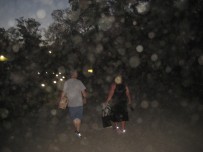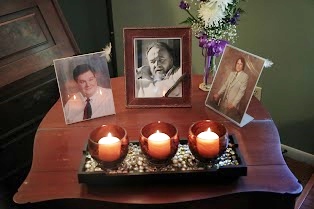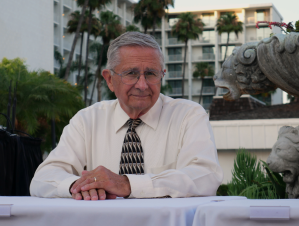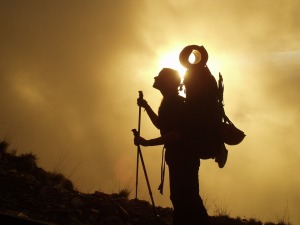
“The intuitive mind is a sacred gift and the rational mind is a faithful servant. We have created a society that honors the servant and has forgotten the gift.”–Albert Einstein
In the midst of the current world chaos when people encounter the word “diversity” what probably comes to mind first is what might be called obvious diversity—race, religion, ethnic origin, culture, citizenship, gender, economic status. What I am writing about today is less noticeable and for some perhaps rather more controversial—I think of it as diversity within mind.
I don’t mean the differences between gifted and more typical minds, between left and right brain dominance, between math/science and humanities preferences, or even Dabrowski’s OEs. There is much to be said about all of these, and of course much has been written about all of them in the gifted literature.
What is less discussed in that literature, less discussed in the academic community, except obliquely, is the fact that the human mind has two primary modes of operation. They could be called ways of accessing information or even ways of knowing. These two entirely different modes are Intellect and Intuition. The first is the aspect of mind measured by most intelligence tests—intellect. It is the dwelling place of reason, logic, rationality. It is generally thought of as a specifically human attribute, the mental capacity that allows us to learn, explore reality, understand, share ideas and knowledge, create, and invent. When some people use the term mind what they mean is just this—intellect. If they think about intuition, they consider it to be some vague and unreliable something that, if it exists at all, is akin to what in animals we label instinct, a lesser kind of consciousness that might occasionally surprise us when the phone rings and without seeing the caller I.D. we have a “hunch” about who is trying to reach us.
In spite of Einstein’s words, above, intuition is not most generally a serious focus of attention when considering the unusual or extreme intelligence of gifted individuals. While intellect is rational, many refer to intuition, therefore, as irrational, and dismiss it on those grounds. I far prefer the term nonrational, which acknowledges its difference without dismissing its genuine value. A couple of years ago when I was in a FaceBook group created to discuss giftedness, any mention of the kinds of unusual awareness that are available to us through intuition was met with hostility and ridicule. I probably posted the Einstein quotation before I left the group, tired of the futile attempt to broaden the conversation to include the aspect of mind that allows direct knowing. Yet in a kind of linguistic U-turn, in earlier times to say that someone was “gifted,” or had “the gift,” actually meant that the person had highly developed and powerful intuition, sometimes known as second sight, sixth sense, or psychic ability.
Interestingly, speaking to a diverse audience about mind and giftedness when I ask people to raise their hands if they have ever experienced an accurate, intuitive “hit,” a majority raise their hands. For some this sort of direct knowing is frequent and common enough to be relied upon, for others their intuitive experience was a one time, goose-bump-raising, highly memorable event.
I’m among those who argue that intuition is a valuable and basic aspect of the mind, every bit as worthy of being recognized and developed as intellect. For those who distrust it or disbelieve in its existence, I would remind them of a time (I’m old enough to remember it) when elementary school children in this country (especially in Catholic schools, but elsewhere, too) were discouraged or even punished for using their left hands instead of their right. Handedness was not yet understood as an innate aspect of the individual’s brain structure. As we learned more about the brain, we realized that being left handed—or ambidextrous—is not only natural to some, but is associated with some unique and worthwhile attributes.
In the Myers-Briggs inventory of types, one of the variables (N) stands for intuition, the method of taking in information that is opposed on the scale to sensing (S). Those who prefer Sensing on the N-S continuum look for information that is concrete, can be accessed through the senses, and includes details and facts. Those who prefer Intuition are more likely to get hunches and trust them, and to perceive underlying structures and patterns and make assumptions based on those. Webster’s Unabridged Dictionary defines intuition as “…the immediate knowing or learning of something without the conscious use of reasoning; instantaneous apperception.”
Both N and S are natural capacities that may be more or less developed, more or less used, according to nature, but nurture is involved as well. When we do not respect or allow intuitive ways of knowing, we may do as much to shut it down in those whose natural capacities are closer to N on the continuum than S, as forcing the exclusive use of the right hand distorted for many the attributes of left-handedness. Those who have been told (or believe) that intuition either doesn’t exist or is vague and unreliable, are much less likely to develop and use it than those in whom its presence is acknowledged, supported, valued.
As we are more and more inundated with information, more and more challenged to keep up with the constant flow of new information on almost every topic imaginable, it’s likely that we are going to find it more and more critical for the individual to acknowledge and gain access to that “other” way of knowing that is entirely outside the realm of reason, rationality, logic and intellect. We need to have a way of sorting through the deluge to limit our intake, to get accurate hunches about just what pieces of information in that stream we most need in any given situation or any given moment. When we do get such hunches we need to respect them rather than dismissing them automatically, even though they may be given to us in a “still, small voice” easily over-ridden by the loud and confident intellect. As we begin to trust them, they begin to work for us more and more often, more and more accurately.
One of my colleagues is affectionately known as “Nancy Drew” because she’s able to find information other people can’t. She is led to that information intuitively. Though she reads incredibly fast, she is often able simply to go directly to the right shelf, the right box, the right file drawer in the midst of an archive that might take another person weeks or months to sort through in a more rational, methodical way. She trusts her methods, and seeing her results lets the rest of us trust them, too. Books she needs have even been known to fall off the shelf to get her attention.
I knew that my Myers-Briggs results showed me to be far out on the N side of the N-S continuum, but I didn’t realize that many psychics refer to themselves as Intuitives. So I often said, “I don’t have a psychic bone in my body.” Then several professional psychics told me I was one of them. Thanks to my strict, rational-materialist upbringing and education, I dismissed their suggestions. Then one of them told me that while I could learn to access my intuitive nature, people with highly capable intellects (“the gifted”) are among those most difficult to teach to do that. I was lucky, though. I’m a fiction writer and have made much of my living with my imagination.
Once, while doing research for my novel Welcome to the Ark, I went to hear the grandson of Edgar Cayce speak, and he quoted his grandfather, saying “Imagination is the doorway to intuition.” Imagination and intuition are not the same thing, since intuition is a way of knowing and imagination is a way of exploring (or creating) possibilities. Imagination allows us to escape from the tyranny of what is already known, from facts previously established, and from the “real world” to explore new territory. In that new territory intuition may then encounter its truth.
Einstein famously said (in a 1929 interview in The Saturday Evening Post) “I am enough of the artist to draw freely upon my imagination. Imagination is more important than knowledge. Knowledge is limited. Imagination encircles the world.” Much of what Einstein gave to the world came from a combination of imagination and his own thorough grounding in what was already known or theorized and the extraordinary intellect that let him devise ways to test and share his sudden insights. But it certainly was the free flight of imagination that allowed him to make intuitive leaps to entirely new ground. He also famously said that to encourage children to become scientists one should nourish them with fairy tales.
Intellect feels safer. One can follow its trail from fact to fact, from source to source, from concept to concept, thought to thought, reflection to reflection. The accomplishments of intellect can be traced, diagrammed, understood—unlike the “Eureka!” moment, when, like a kaleidoscope turning, an entirely new pattern suddenly emerges in what feels like a magical way that could not have been predicted or understood by analyzing the trail.
While it’s true that some people are intuitive super stars, able to tune in to information, “vibrations,” others cannot sense, that is no more of an excuse not to train ourselves to use this aspect of mind than it would be to say that no one other than the profoundly gifted should work to develop their intellect. I have been working at developing my own long-neglected intuition for a number of years now (over the often strenuous objections of my rational mind), and I’ve come to believe that it is essential for the future of humanity, not only to accept intuition’s apparently magical existence, but to respect what it can give us that reason cannot. Some of its aspects can seem “paranormal” and unsettling, since we have no way to really understand them. But I remind myself regularly that we don’t actually understand intellect either. Consciousness itself is still one of the great mysteries.
Personally, I’m not sure I would want to hand the task of helping children develop their intuition over to our schools, since they are overburdened as it is. But—as I’ve said often before, I think it amounts to educational malpractice not to tell kids that it exists, that it is a powerful natural aspect of mind, and that it can be developed. And schools can certainly do far more than most do now to help children value imagination, use it, practice it, and most of all respect it. Respect for imagination both allows and encourages the opening of that door to other ways of knowing.
Meantime, there are many people who are intuitive masters already engaged in teaching people how to access, develop, and use this aspect of mind. There are many books and workbooks for this, some designed for adults, some for children. Parents may have to be the ones to find the resources for this, but from my own childhood experience, I can confidently say that telling children that their moments of direct knowing are dangerous, unreliable, and should not be accepted or used, is like forcing left-handed kids to use only their right—a kind of purposeful crippling. It is only when we respect and encourage the development and best use of the whole mind, both intellect and intuition, that we access humanity’s highest intelligence. Edgar Cayce said imagination is the doorway to intuition; I would add that intuition is the doorway to the infinite.

Tags: Aspects of Mind, Diversity, Giftedness, Individualitiy















